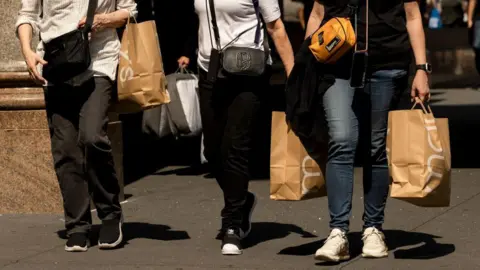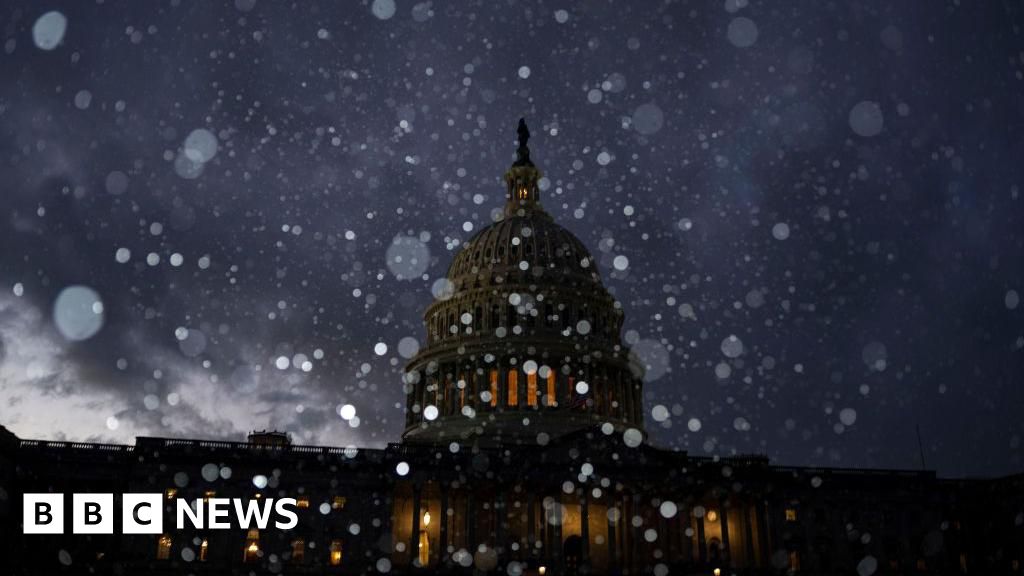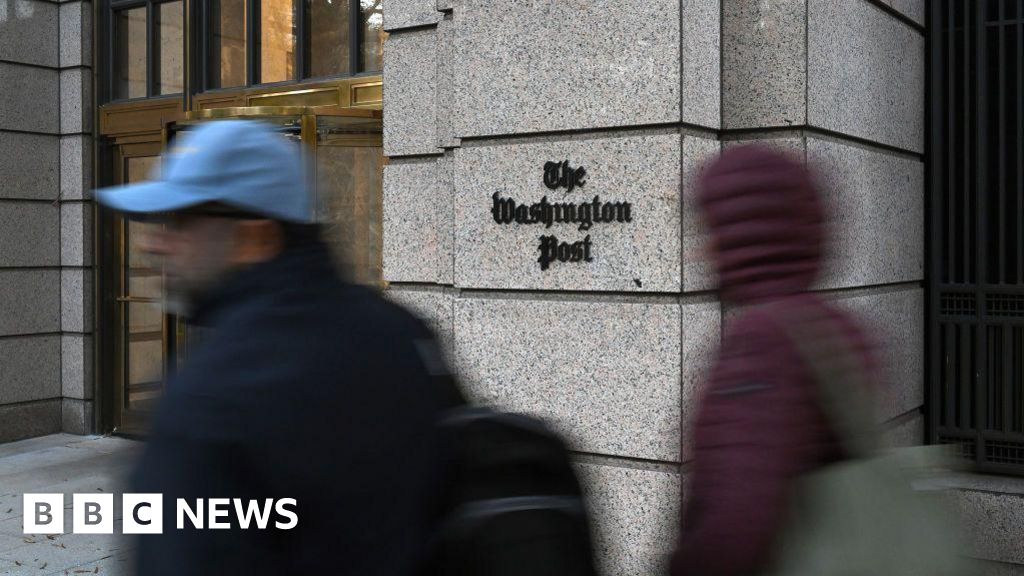ARTICLE AD BOX

 Getty Images
Getty Images
The US economy grew solidly in the three months to September, expanding at an annual rate of 2.8%.
Despite there being a slight slowdown from the prior quarter's 3% rate, the figures released by the Commerce Department showed the US is on track for one of the strongest economic performances of any major economy this year.
Consumer spending was the biggest driver, picking up from earlier in the year.
The report arrives days before polls close in America's hotly contested presidential election, in which surveys have consistently indicated the economy is Americans' top concern.
It is not clear the latest figures will do much to assuage people's worries.
Economic sentiment, which darkened abruptly during the pandemic, has remained downbeat, as a roughly 21% jump in prices over the past four years overshadows other economic news, no matter how positive.
This month, a solid 62% of Americans viewed the economy overall as "bad", according to a poll by the Associated Press-NORC Center for Public Affairs Research.
In a country where the mantra "it's the economy, stupid" - coined by strategist James Carville in 1992 - is often deployed to explain elections, one might expect the worries to be bad news for Kamala Harris and the Democrats, as the party in the White House.
Donald Trump has tried to seize on the opportunity, making his economic record as president, which is remembered as a rosier time, a key part of his pitch to voters.
But as opinions have grown increasingly coloured by a person's political views over the last few decades, analysts said it is not clear how big a role the economy will actually play in shaping the election outcome this year.
"Even though the economy is based on numbers, a lot of people's views are partisan," said Marjorie Connelly, senior fellow at the AP-NORC Center for Public Affairs. "The economy will be a factor, but ... I think partisanship will be the biggest factor."
The AP-NORC poll found that 61% of Democrats thought the economy was good, compared with just 13% of Republicans and 28% of independents.
The same poll found that voters were split, along party lines, as to whether they trusted Trump or Harris more on issues such as the cost of groceries and gas or jobs and unemployment.
Despite the economy ranking as a top election issue, other matters may prove more decisive, Ms Connelly added.
"I don't know how much people are going to vote on the economy," she said. "There are other issues."
What does the data show?
One reason the economy often emerges at the top of voter concerns in polls is simply because it's one of the few areas that large shares of both Democrats and Republicans agree is relatively important.
Meanwhile, much of the hard data has been solid or moving in the right direction.
Petrol prices are down, grocery prices are stabilising and wages, for at least the past year, have been rising faster than prices, which for many families is helping to offset the jump in living costs.
In September, the Federal Reserve cut interest rates for the first time in four years, saying it was increasingly confident that the inflation problem was easing.
A sharp rebound in jobs growth in September also quieted the worries of many economic forecasters, who have spent much of the last few years predicting a downturn that has not materialised.
On Tuesday, the Conference Board reported that its monthly index of consumer sentiment jumped in October, as confidence in job availability and optimism about future business prospects and income rose.
The share of people worried about an economic recession also fell to the lowest level since the organisation started asking the question in July 2022.
Samuel Tombs, chief US economist at Pantheon Macroeconomics, said he thought the improvement in sentiment was likely due to rising optimism among Republicans, as they grow more confident that Trump can win the election.
But Dana Peterson, chief economist for The Conference Board, said she thought it reflected growing realisation of the economic reality.
"The data are the data. What we're seeing is that third quarter GDP was strong, the job market is healthy and inflation is slowing," she said.
"After several years of volatility, consumers are saying we think inflation is not as intense, we're not where we were... and we're not as worried."

 2 months ago
13
2 months ago
13








 English (US) ·
English (US) ·